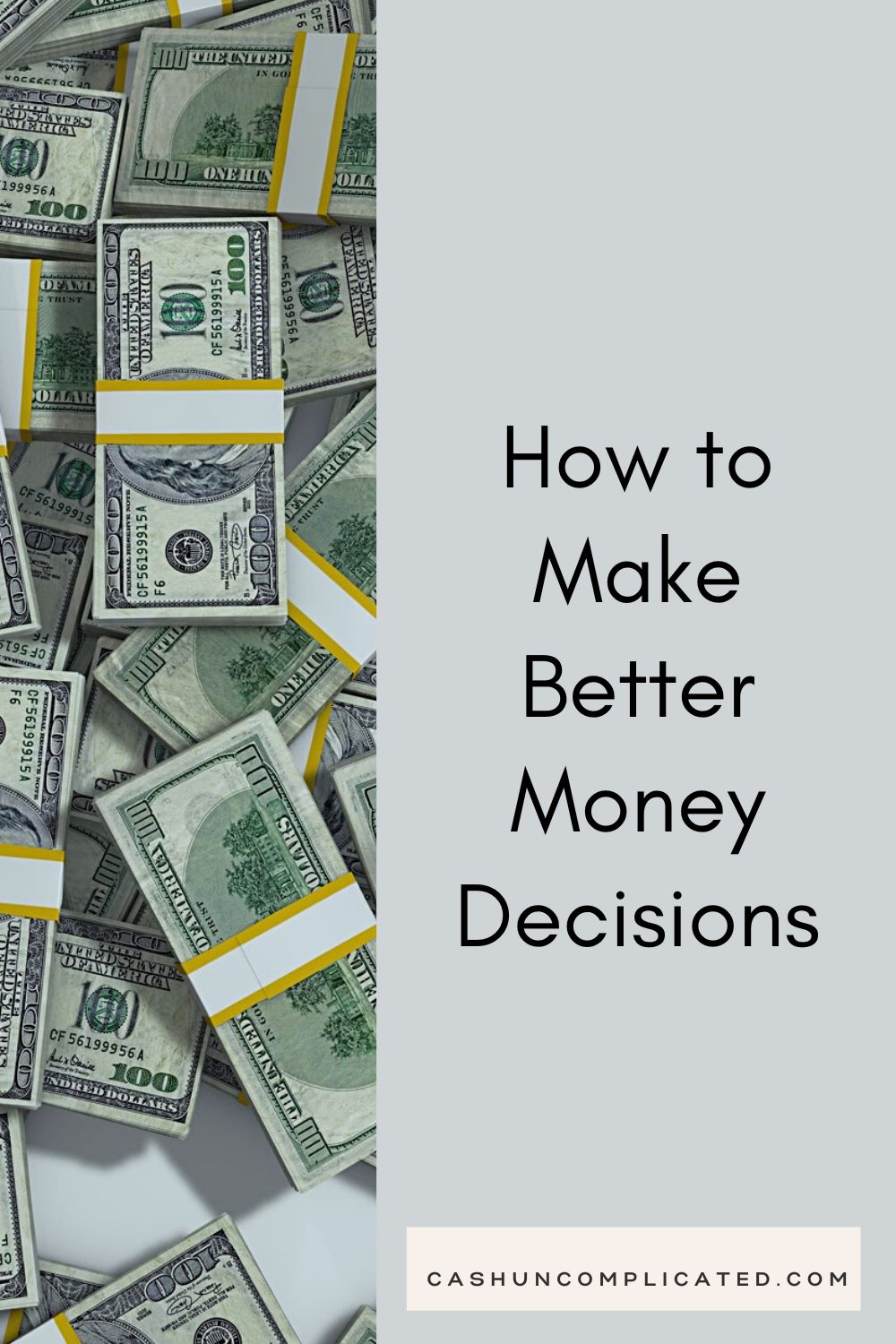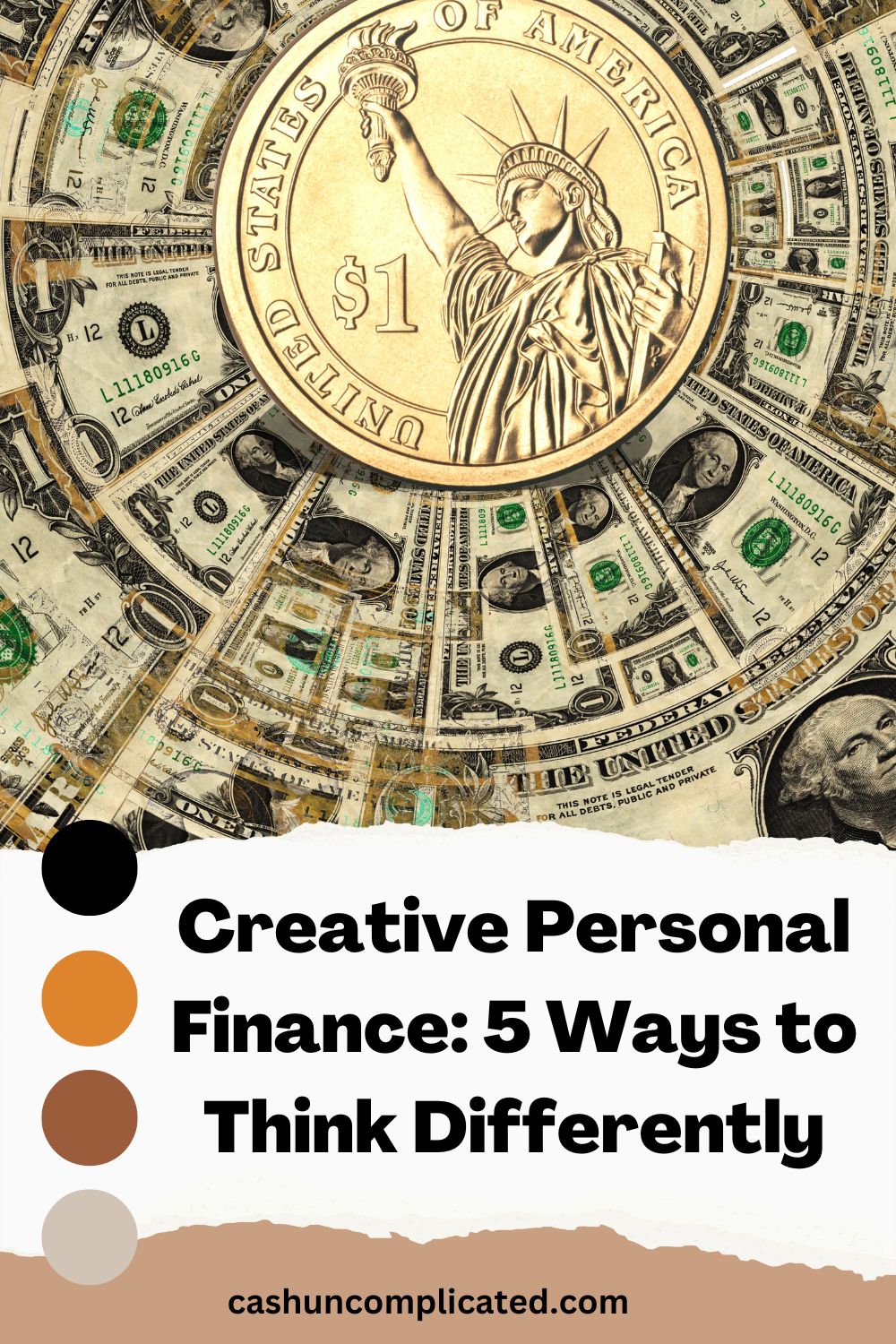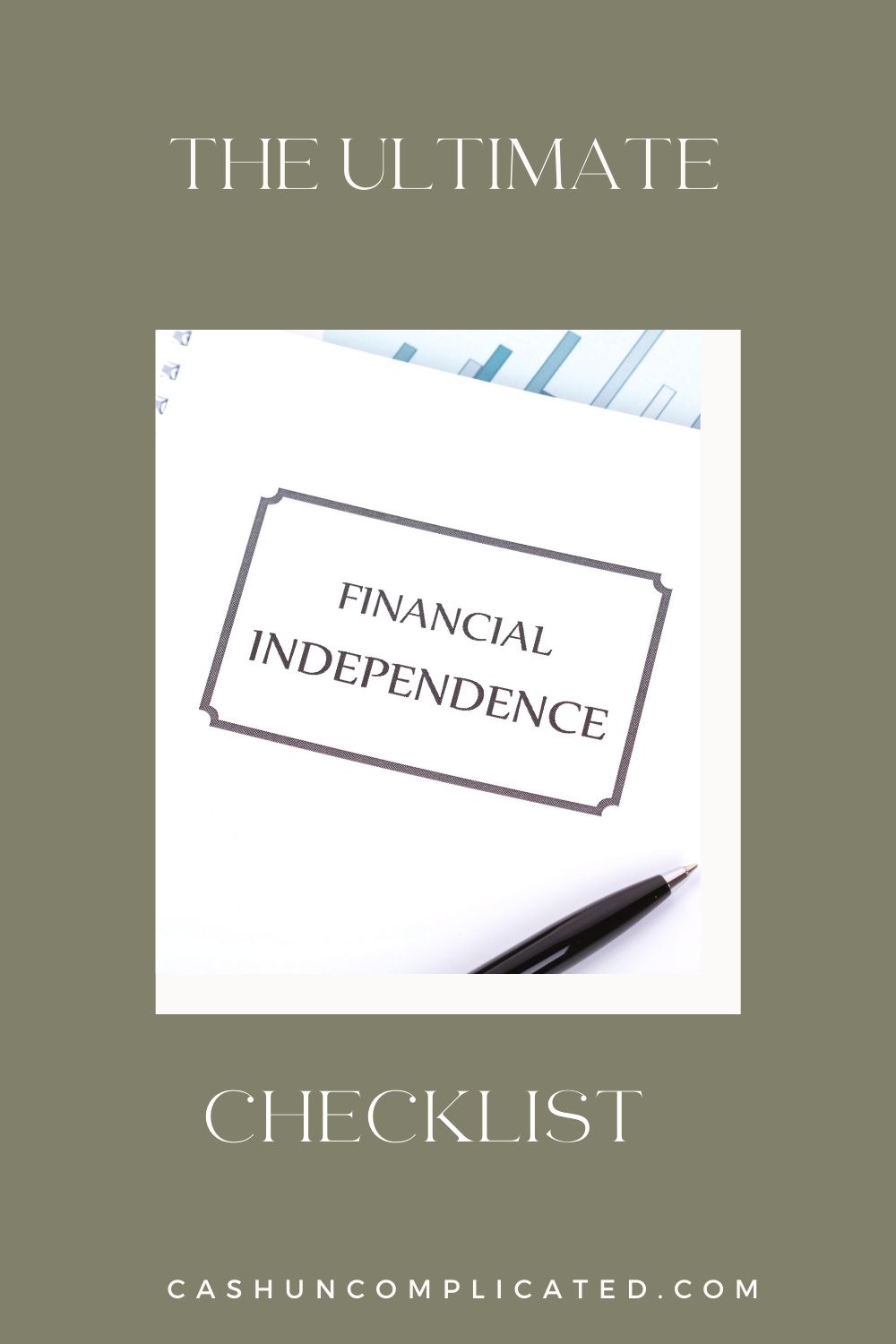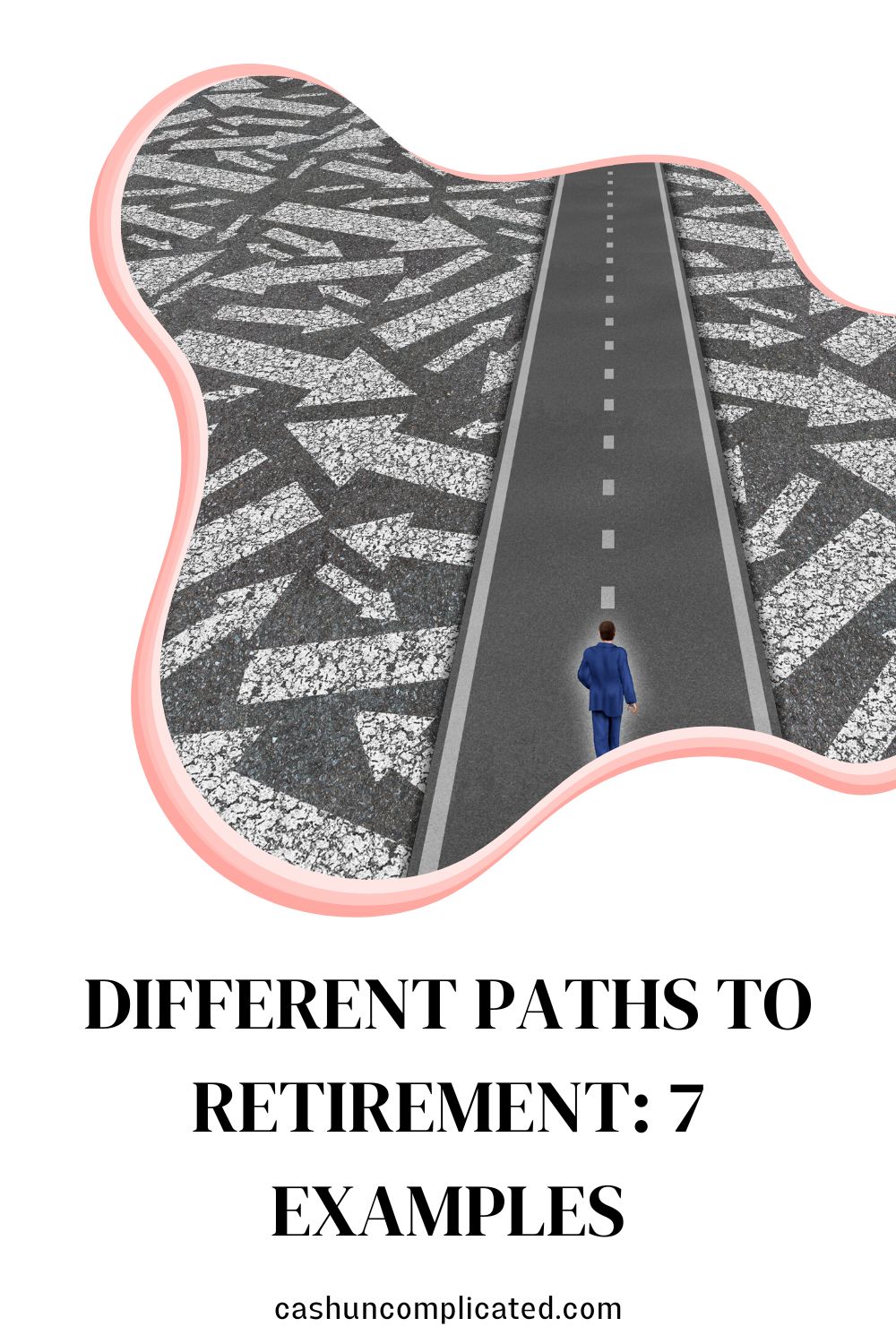Making better money decisions isn’t a guarantee that you’re going to have a great life. But in my experience, it will make things a lot easier and much less stressful. I told the story in my book Cash Uncomplicated of how I went years and years living paycheck to paycheck.
That made things much harder than they needed to be. Personal finances and money in general was a source of stress and worry. It wasn’t until I learned about personal finances and how to make better money decisions that things started to improve.
What Are Money Decisions?
Money decisions are the actions we take around money. They can range from something as small as deciding to make your own coffee at home to something as large as buying a house. And everything in the middle such as where (and how much) to invest your money, what kind of car to buy, where to do your grocery shopping, etc.
Better Money Decisions: The Impact
Better money decisions will make your financial life a lot easier. Which naturally trickles down to the rest of your life. When I struggled with my personal finances in my 20’s and early 30’s, it was years of unnecessary stress.
Not to mention some lost years where I didn’t invest–and consequently lost out on some really good investment opportunities. So better money decisions not only lead to positive outcomes now, but also for the future you. Some other benefits of better money decisions, among many:
- Less stress and worry
- More opportunities
- Positive future outcomes
- Life flexibility
How to Make Better Money Decisions
There are lots of ways to make better money decisions. This post will address a few of those ways to get you started–including some of the big ways that helped me transform my personal finances.
Number 1: Write Down Your Values
This is an exercise that seems relatively simple on the surface but requires a good amount of thought. There’s probably going to be some revisions and crossing out items as you go.
That exercise is to write down your values. Eventually, you will assess how those values relate to your financial decisions. Using myself as an example, some of my values include:
- Positive relationships with family and friends
- Consistent exercise and healthy eating
- Personal and professional growth
- Stable finances
- Travel and recreation
Anything that fits in these values (along with necessities) are what I want and am willing to spend money on. Things outside these values are going to be met with scrutiny, and likely rejection.
As part of my book bonuses, I created a template that will help with this exercise. Follow this link and go to page two to fill in your own values.
Number 2: Be a Value-Based Spender
Number two on the list of ways to make better money decisions is to become a value-based spender. This also directly correlates with the first tip.
After you have assessed your values, spend only on necessities and what you truly value. This is value-based spending in its purest sense. If you are someone who values travel, spend money on travel.
If you value positive relationships with family and friends, spend money towards experiences to strengthen those values. For example, a parent spending money to take their child to the zoo. That costs money but it’s money spent towards something the parent values.
Same for experiences like travel to other parts of the country or world or conferences/seminars that focus on personal growth and development.
Related: Value-Based Spending: How to Create a Budget Around What You Value
Number 3: Create Goals Around Your Values
Third on the list of how to make better money decisions is create goals around your values. For example, someone who values time with their family would create goals about how to spend more quality time with their family. That could look a variety of ways, including:
- Leaving work by a set time everyday
- Eliminate all consumer debt so there’s less pressure to work a side job for extra income
- Take on less clients and work less weekends
There are countless ways to do this, these are just some quick examples. The basic idea though is to design the life you want to live. Money of course is a big part of that because it’s the way to finance a lifestyle by design.
Number 4: Education
It’s hard to make better money decisions if you don’t know what better money decisions look like. I’ll use myself as an example.
As little as 10 years ago, I had no idea that the average person could invest in index funds or real estate. I thought it was only for the wealthy. Once I got educated on different types of investments, I realized there was much more opportunity available than I knew.
Another thing I wasn’t aware of was the process of investing and getting out of the paycheck to paycheck trap. I thought I would just live off the money I made at work and if I happened to have anything left over–I’d save it.
What I didn’t realize is that the best way to save and invest money is to pay yourself first by automating your paycheck. Once I learned these things, I suddenly had money to invest and it’s continued to grow over the years.
Personal finance book recommendations (in no particular order):
Number 5: Change Your Mindset
A positive mindset goes a long way to improving your circumstances, whether it be health, personal, financial, or any other aspect of life. A positive mindset leaves the door open for new information, learning, development, and growth.
As I wrote about in the introduction of my book Cash Uncomplicated, I used to have a very poor mindset towards my personal finances. Not surprisingly, I also had very little success in my personal finances. It really wasn’t until I changed my mindset that I began to see better results.
It’s hard to say what came first, kind of like the chicken or the egg. I don’t know if my improved mindset helped me to get more education and do the work around creating goals or if my activities led to an improved mindset.
Either way, I know mindset was an integral part of my change. The advice I would give anyone is to really work on your mindset and question what you have held to be true around money and your behavior around it.
Conclusion
I’m convinced that everyone can make better money decisions. There is a lot of stigma and false information when it comes to personal finance and money. Cut through some of the noise and you’ll find that the good decisions start to come in waves.
I made very poor money decisions for a long time. Following these tips in the post transformed me from a financial disaster to a success. And I believe they can do the same for you.
How can you make better money decisions?










